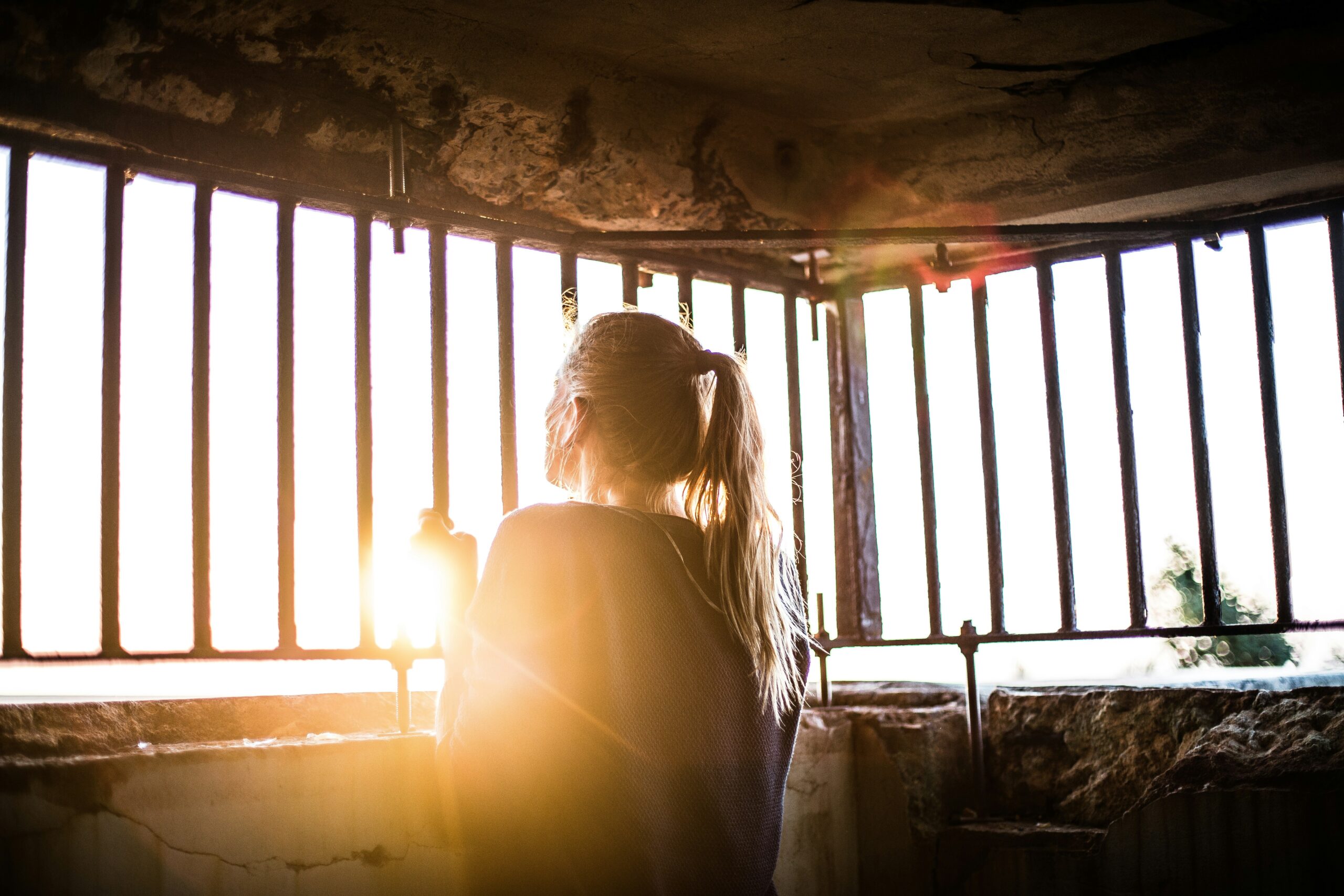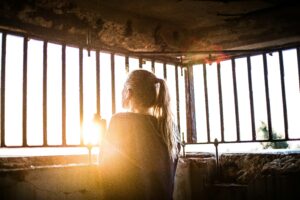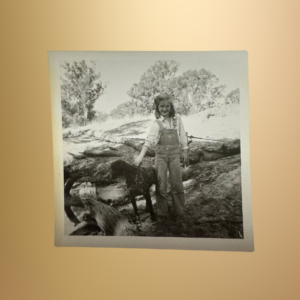The Cycle of Mental and Physical Abuse
Throughout my childhood and most of my adulthood, I was abused by members of my family of origin. Today, I’d like to share my experience of familial abuse and how I broke free and began a new life. I am sharing this with you so you don’t feel so alone if this has happened to you – and give you hope that you can break free – and have the life you want to live.
Fleur Elizabeth
Round And Round
There was a cycle of abuse in my family. I was adored and then suddenly kin-hit (physically and metaphorically) by an attack of some kind that would knock me off my feet. Then, in the next moment, hour or day, they would build me back up again and tell me everything was okay. I was again cherished and included in normal, day-to-day activities as if nothing had happened.
Until my teenage years, I knew how to entertain myself and keep occupied. I was the youngest of the family members and the scapegoat. I created a bubble where I could play my own fun games without being disturbed. I had my invisible friend, and we’d put on shows with my dolls and toys. Things were great; it was sunny in my world until it wasn’t.
Tick… tick… tick… boom. Like clockwork, all would be well, but then it would change. Another typical style of strife in my family was when recreational fun turned savage. These games started with rough playfulness, which was normalised, so in my mind, things felt okay. I was taught and conditioned to believe that these games were our style of entertainment. However, a chain reaction would occur if I showed any signs of objection: things would escalate and become more forceful.
My trauma extended beyond sexual abuse to physical and mental abuse. I was the subject of repetitive, spontaneous attacks. I was destabilised, undermined, humiliated, manipulated or physically harmed. I was beaten, held down, spat on, ridiculed, shamed, gaslit and made fun of. I was subject to torture.
Sometimes, it felt like complete hatred and really scared me. Sometimes, it was disguised as play-fighting and really confused me. Nevertheless, my body was always tense in trepidation. Everything was presented as a joke, and I needed to play along to have fun—or else. Then, some dramatic explosion of aggression would hit me like a big wave of forceful energy. The inevitable floods of tears were not approved. I was criticised for my tears and called a crybaby.
Then, poof – like nothing had ever happened, I was adored again. It was like whiplash.
Again, and again, and again. Build me up, tear me down. Again and again. With each time, the attacks were normalised, downplayed, or portrayed as my fault for upsetting things. I had no voice or way of objecting to how this was all being framed. I cowered and became submissive. I was so reliant on being built back up again that I blamed myself when the attacks happened, even when they came out of nowhere. It was all very confusing.
When I complained, cried, and begged for help, I was gaslit and told there was nothing wrong. Either I was making it up, it didn’t happen like that, or it never happened. I had a vivid imagination (that was a good one). Or I was being a drama queen, which was all my fault.
All my pleas for help fell on deaf ears. How could my caretakers have so little concern about my welfare? It wasn’t until years later that I connected the dots of their motivations to gaslight me and collude against me, in some instances passively creating these situations. The trauma my caretakers had endured themselves and the cycle of abuse were why this was all normalised in our household. In fact, one of them said to me that if they could get through it, so could I.
With no voice, I suffered in silence. There was no empathetic witness to validate me or to step in and stop what was happening. We were all connected in this toxic shame about our behaviours and in the pain, loneliness and mistrust that come with constant abuse and mental manipulation. What a confusing view of the world for a young girl.
The Two Lives Of An Abuse Victim
On the outside, I had a false persona, bright and bigger than life. If you gave me a microphone, you would never get it back. But behind the closed family-only door, it was a very different picture. Every day, I again went through the ritual of being the scapegoat, shamed and degraded and made to feel small. It reduced my confidence to nothing; I was always waiting for the next high for the crumbs of praise or acceptance they might offer me.
Playing along during the fun times was also a reprieve, albeit temporary. These times became more valuable to me, and so I would suffer through the next lot of abuse because I knew they would come. Then, boom – it would happen again. I absolutely depended on the next high they would dish out; it was how I survived. As sad as that is to admit, it was my truth. I made excuses for them, I was scared of them, and I seemed to love them all at the same time.
For years and years, these cycles played out. I was spat on, kicked, pinned down and repetitively hit; my hair was pulled and, at times, pulled out. I was whipped in the face with face-washers that felt like leather as I slept because I wet the bed (a trauma response from being violated).
In front of a crowd, I was pushed into massive piles of hot, steamy cow poo for the group’s entertainment. Begging for it to stop, I was laughed at, gaslighted, and told I was being a crybaby and should stop moaning.
One day, on the farm, I was instructed to stand in a paddock with two family members present. One was standing on the sideline, assuring it was alright to do what they asked, and the other was sent to open the gates. A cheering and rallying action started, stirring the herd of horses that had been locked, jolting outwards at furious speeds. A stampede that ran me down, leaving me injured and with a significant concussion.
I was taken to a country farm and instructed to bring my friend; on arrival, I was locked in a room and forced to listen while five drunk teenagers raped my friend. And if I objected in any way, I was told to keep my mouth shut, and I was threatened. The cycle of abuse is to keep you in fear – build you up, and tear you down. Even these threats were normalised, and my heart-pounding fear was invalidated.
The only reason the physical violence stopped was because I no longer lived with these particular individuals. Distance was my friend, yet the mental abuse continued. I was tormented and put down for the most incredibly minor things. I was blamed when circumstances didn’t go the way the family wanted. I shamed myself for the actions I took in my life to go out and give it a go and make something of myself. Every little mistake I made, I magnified into a monumental personality defect and flaw.
I constantly had to suck it up and swallow fierce statements about how I was an embarrassment to the family and unworthy, all to stay included in the family unit. Whatever I did, I was deemed a failure in the public forum of our family rhetoric. It was all packaged up in jokes, putdowns or comments telling me to toughen up and drink a cup of cement.
When my objections and attempts to separate became more frequent, the family member who was my most aggressive abuser (but for whom I had a deep symbiotic connection and love) swore that he would kill me on numerous occasions. Imagine hearing, “I will hunt you down and chop you up into little pieces.”
Breaking Free Of The Trauma Bond
I lived that life until my early 40s. Feeling mentally strung out and so insecure within myself, I saw a psychotherapist who explained to me that I was a victim of abuse. I recall that at the time, I couldn’t even say the word abuse. I couldn’t say anything that would criticise or blame these people. I loved them; how could this be abuse? I thought these people were my best friends. That is what I said to my therapist at the time to characterise our relationships.
My aha moment was learning about how everyone plays a role everyone plays a role in the family of origin. Soon, this all made sense to me, and I started to see what was happening to me. My therapist taught me how to disengage from the role I was playing in that unit. Gosh, that was not easy and created a bumpy ride.
My anxiety attacks, the fear, the resentment that started building – whoa. It was a lot to deal with. And all the while, these cycles continued, and I kept showing up for them. Dramatic scenarios started happening to pull me back into the unit under the guise that I was needed. Then, the attacks escalated in severity as I got wiser and began seeking to set a boundary and separate myself from this symbiotic link of toxic shame. I learned to see when the attacks would come, and I could sometimes sidestep them and sometimes not.
Breaking free from a symbiotic relationship is complex and immensely sticky, and it rarely ends well for one or all parties. Everyone would love kind and compassionate words and actions, but when an abused person tries to make the separation, the abusers quickly return to their cruel and brutal playbook. In my case, it was an ending with a catastrophic result. This was one attack I couldn’t sidestep. However, this time, I definitely played a role in provoking it. Some pretty colourful words flowed as I purged my uncontrollable rage at the years of suffering.
Demonic fights can never be won solo, and I lost, that’s for sure. It was one hell of a scary scene fit for a Netflix script, leaving me with some pretty devasting damage and a permanent end. Yet, as some say, everything happens for a reason and at the right time. So, as painful as it was, sadistically, it could be said that the pain and extreme isolation that followed were worth it if it was the last attack I would ever endure from them.
If you have ever had or are familiar with Stockholm syndrome, that is a reasonable way to appreciate what I went through and what I suffered. That was me. I loved my abusers. I was trapped in these cycles with no way out. I protected and defended them, even said how fabulous they were. It took a lot of therapy to wrap my head around the fact that what happened to me was abuse. It was not easy at all.
Now I accept it. Now I know and can see it for what it was, and the reason I’m championing – I can’t even say that word – this topic of abuse is because I think more people need to be strong enough and feel confident enough to talk about it. We need to normalise admitting that this actually happens in the family of origin.
Healing From The Trauma Cycle
They say that 1 in 5 women will suffer from abuse in the family or origin – however, I think it’s much more than that because so many people, like me, hide their shame and their experiences of abuse. 80% of women who have suffered this kind of abuse have suicidal thoughts. 40% of those women go through some sort of attempt on their lives. 20% of those people are successful.
I know there are a lot of you out there who, like me, have experienced the cycle of abuse and had very dark times. The cuts, bruises, shame and even broken hips and smashed faces can heal, sure. The damage it does to your trust, feminine energy, and peace takes longer to heal and will undoubtedly require a lot of work.
I have done the work, faced my trauma, and taken back my control. I am deeply aware of how many people suffer like I have, and indeed, how many of those people end up in Drug Rehan clinics, Alcoholics Anonymous, or suffering from disturbing psychological issues.
I know I am one of the lucky ones. Yes, I have had suicidal thoughts, and very close to taking action a few times. But somehow, I kept fighting on. I am grateful that I am here today to help others to find a path forward. I’m not ashamed to say I will continue to do so for the rest of my life. I continue to look after my former self, giving her validation. I only do things that provide me joy today, which is 100% mandatory.
I love the peace I have found inside my wonderfully blissful and happy surroundings. At home, I take time to explore my creative side; I love creating new art and using colours to express myself. I love my garden and everything outside; my morning walks are my meditation and safe haven. I take care of my body, I protect my energy, I have very clear boundaries with people, and I don’t allow any energy vampires near me anymore. I have removed all chaos from my life – and see my health as my savour. My life now may not seem so sexy and filled with high-class action, but it is authentic. And the best part about this is – I know my future self is being taken care of at the same time!
“There’s an expression – ‘Envy someone to their front door’. Everything may look great outside, but you can’t see what goes on behind closed doors. This is far more common in families that are brilliant at keeping up appearances and hiding their toxic secrets of abuse. None of this stuff is pretty.“
Fleur Elizabeth
#notmysecretanymore





